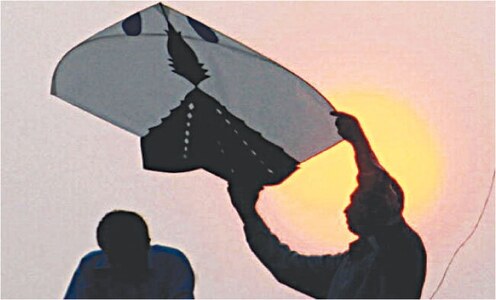ISLAMABAD: Chief Justice Asif Saeed Khosa regretted on Friday that the judiciary was often mocked about the staggering 1.9 million pending cases in its different tiers when it could not be squarely held responsible for the backlog.
“The one responsible for the huge backlog is not the judiciary, instead someone else needs to be blamed,” he said.
The strongly worded observation came during the hearing of a civil case in which the chief justice bemoaned that almost 25 per cent seats in the judiciary of Pakistan were vacant.
If these positions were filled by the government, the backlog of pending cases would considerably reduce within one or two years, he suggested.
For a population of 210 or 220 million people, there were only 3,000 judges and magistrates available from top to bottom, he said.
Says Supreme Court decided 26,000 cases last year
During the last year 3.1 million cases were decided, the chief justice said. Comparing the judicial system of Pakistan with that of the United States, he said that the Supreme Court of Pakistan had wrapped up 26,000 cases during last year while the American Supreme Court could decide only 80 to 90 cases.
“Despite heavy workload, our judges are trying their level best to clear the backlog,” the chief justice said.
This alarming situation in the judicial sector was also highlighted by Chief Justice Khosa when he spoke at the full court reference hosted by the Supreme Court to bid farewell to his predecessor, former chief justice Mian Saqib Nisar.
Then Chief Justice Khosa had lamented that successive governments had failed to suitably increase the number of judges and magistrates on account of financial constraints and pointed out that 3,000 judges and magistrates could not handle 1.9m cases even if they worked for “36 hours a day”.
It was, therefore, time to take some big and hard decisions, he had observed, adding that it was time to introduce some structural and systemic changes to minimise litigation, eliminate unnecessary delays and rationalise the workload.
Time had also come when the judicial system as a whole needed to be redesigned or restructured and made simple and effective, the chief justice had suggested.
He had also proposed replacement of the four-tier judicial hierarchy with a three-tier system wherein there should be district judiciary as trial court for all civil and criminal cases, the provincial high courts as the courts of appeal in all cases and the Supreme Court as the last resort.
All questions of fact must attain finality at the level of the high court and the Supreme Court ought to attend only to interpretation of the constitution and laws, the chief justice had suggested.
He had also stated that all special courts should be abolished and there should be one hierarchy of courts with specified judges of district judiciary attending to cases under the special laws pertaining to drugs, banking, corruption, terrorism, labour, intellectual property and consumer protection, etc. with appeals in such cases going to the high courts.
The special courts created under a federal statute might be financed and administered by the federal government but they might fit into the same hierarchy, the chief justice had said. Having only one judicial hierarchy might eliminate jurisdictional disputes as well as the delay caused in resolving such disputes, he had said.
Published in Dawn, March 9th, 2019


































